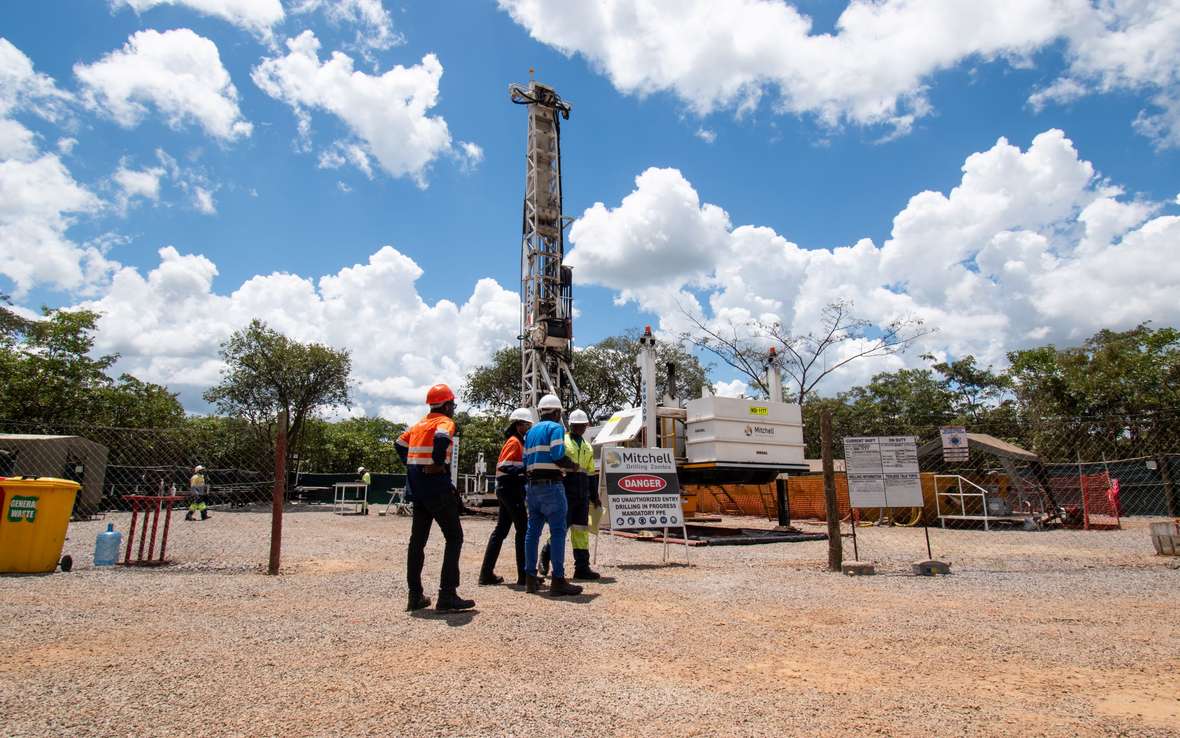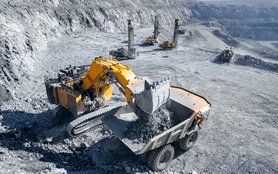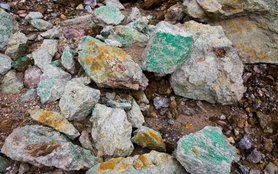A handful of American billionaires are set to benefit from President Trump's minerals-for-peace deal in the DRC. If history is repeating itself, locals are right to be wary.
While President Trump has heralded his “minerals-for-peace” agreement between the Democratic Republic of Congo (DRC) and Rwanda as a “new chapter” for the region, locals are more wary. This skepticism is justified: while not mentioned in the formal agreement, it is American access to critical minerals, not peacebuilding, that is the clear priority. To complicate matters, the deal itself was orchestrated by Massad Boulos, one of the President's billionaire backers who made his fortune selling cars, not moving minerals. A handful of other billionaires are set to benefit.
Whether it is the start of something new, or simply the latest chapter in a longer saga of colonialist misadventures, mining companies should proceed with caution in central Africa.
This starts with understanding history. After all, it was in the industrial boom of the late 19th century that American explorer Frederick Russell Burnham popularized the “African Copperbelt,” the mineral-rich region of today’s Southern DRC and Northern Zambia. Against the backdrop of an electrical revolution, Burnham knew that conductive copper was proving more valuable for the wealthy, gilded-age “Copper Kings” of Butte, Montana than gold was for the miners of northern California. Savvy investors might profit even further from (exploitatively) cheap labor and empire-building projects across the Copperbelt, he reasoned.
The parallels with today abound. As the world embarks on an ambitious clean-energy revolution, copper (and cobalt, which is co-located with copper) is once again king. In the United States, a new class of Copper Kings has emerged – not from Montana, where mining is largely mothballed, but Silicon Valley. And, in the African Copperbelt, governments and companies are re-investing in colonial-era projects to move minerals abroad.
Oxfam recently traveled to Zambia to investigate the Lobito Corridor, one of these flagship projects. Ambitious in scope and backed by the United States, the corridor will connect Zambia with DRC through a rail and road line extending to the Lobito port on Angola’s Atlantic coast. In theory, the project will link mines in the Copperbelt to markets in the Americas, bypassing competing routes to China. In reality, China dominates the midstream minerals processing market to such a degree that multiple miners in the Copperbelt told us they are skeptical about the corridor’s economic viability. The Trump administration's recent announcement of 50% tariffs on foreign copper imports has presumably done little to build their confidence.
Regardless, whether effective industrial policy or expensive geopolitical messaging, investments like the Lobito Corridor are a reminder that the battle for what’s below is fierce. This is particularly true for those on the frontlines -- mine workers and host communities -- who remain exposed to environmental hazards and dangerous, sometimes fatal, working conditions. As part of our visit, Oxfam discussed the major consequences of a recent catastrophic mining acid spill with local communities and heard that, despite some successful unionization efforts (particularly in Zambia), the labor inequalities that Burnham observed still persist today.
It does not need to be this way.
While a “new chapter” might be naively out of reach, responsible companies can succeed financially while also upholding standards as well as community and human rights protections. In fact, this might be the only way forward for companies that want to avoid work stoppages linked to escalating battery mineral conflicts, especially in the DRC.
This is certainly the only way forward for a new generation of tech-focused Copper Kings. Unlike traditional mining companies, which are selling to upstream buyers, tech companies are more beholden to reputational risk, supplier slowdowns, and consumer pressure. Mining might be essential to developing drones, cell phones, and electric vehicles, but it is also an unpredictable, messy industry with a legacy of human rights violations. Unsurprisingly, tech firms want to do mining differently, whether that means holding their suppliers to higher standards, advancing corporate and mine-level safeguards, purchasing mines outright, or even eliminating certain minerals from their products altogether.
KoBold’s Mingomba copper project in Zambia offers a glimpse into this tech-adjacent future of mining. Backed by a coalition of billionaires including Bill Gates, Marc Andreessen, and Jeff Bezos with a parent company in Silicon Valley, the Mingomba mine is likely a future anchor project for the Lobito Corridor. Utilizing artificial intelligence, the company is billing itself a different type of miner and has set off a “copper bonanza” in the region. During Oxfam’s visit, the mine’s director of exploration and community engagement manager also made the case for transparency, community engagement, and site safety (even making your author complete a breathalyzer test before coming on-site).
Of course, good policy requires more than passion. Mingomba is on a brownfields site already cleared for mining, meaning that the company can dodge (although not entirely avoid) thorny questions around displacement and land tenure. KoBold’s move to buy a disputed lithium stake across the border in DRC will seriously test the company’s standards and capacity to safely operate in high-risk environments. Still, KoBold’s management seems to understand that their social license to operate hinges on the strength of their local relationships and putting into practice effective human rights and environmental policies. Other companies should take notice.
There are larger, outstanding questions about the role of America’s Kings in the Copperbelt. How will they leverage their role as investors? Will they engage seriously and proactively on human rights concerns or will they intervene with their own out-of-touch “solutions,” such as when Elon Musk proposed utilizing web cameras to monitor for child labor in DRC?
The minerals-for-peace agreement risks becoming one such solution. Mining companies, workers, and frontline communities might benefit from the promise of America’s tech oligarchy, but billionaire backing comes with risk and peril. The precipitous fall of Montana’s Copper Kings -- linked to political corruption and financial scheming in an era of extreme inequality -- should serve as a cautionary reminder of just what is at stake.



